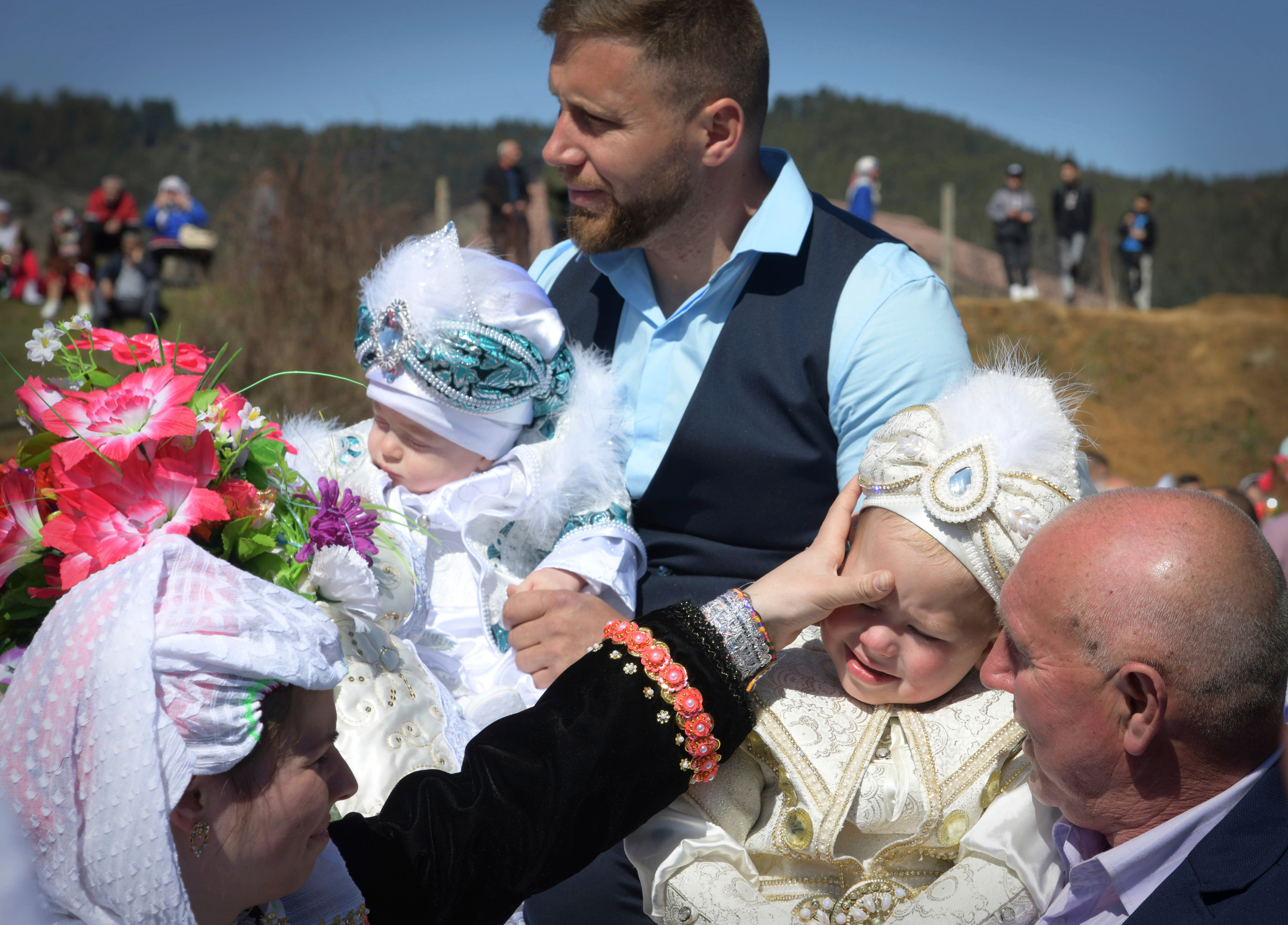Bulgarian Muslims hold circumcision festival despite virus
On the eve of the holy month of Ramadan, Muslims from the southwestern corner of Bulgaria have flocked to a sleepy mountain village for a four-day festival of feasting, music and the mass circumcision of young boys

Your support helps us to tell the story
From reproductive rights to climate change to Big Tech, The Independent is on the ground when the story is developing. Whether it's investigating the financials of Elon Musk's pro-Trump PAC or producing our latest documentary, 'The A Word', which shines a light on the American women fighting for reproductive rights, we know how important it is to parse out the facts from the messaging.
At such a critical moment in US history, we need reporters on the ground. Your donation allows us to keep sending journalists to speak to both sides of the story.
The Independent is trusted by Americans across the entire political spectrum. And unlike many other quality news outlets, we choose not to lock Americans out of our reporting and analysis with paywalls. We believe quality journalism should be available to everyone, paid for by those who can afford it.
Your support makes all the difference.On the eve of the holy month of Ramadan, Muslims from the southwestern corner of Bulgaria flocked to the sleepy mountain village of Ribnovo for a four-day festival of feasting, music and mass circumcisions.
This year’s event in Ribnovo, a mountain village 130 kilometers (80 miles) south of the capital, Sofia was overshadowed by the coronavirus pandemic. Since most of the festivities, however, took place outdoors, the community decided to keep their tradition alive and maintain the circumcision ceremony, which is considered by Muslims a religious duty and essential part of a man’s identity.
The group ritual is held here every four or five years, depending on demand and because most people in the region are poor and can rarely spare money for an individual celebration.
A lack of jobs has forced many to look for better fortunes abroad, but due to the pandemic some have returned home.
Ismail Atipov, 31, who has been living and working for the last 10 years in the Spanish city of Pamplona decided to come home and throw a festival this year for his newborn son.
“When my wife was pregnant, I vowed to organize this event if my baby was a boy. He was born and here I am,” he said.
Little Ismail was one of 80 baby boys circumcised Sunday during this year’s festival.
The ceremony followed three days of preparations. People filled the streets to greet a procession that precedes the circumcision of the boys.
Proud fathers paraded the babies on horses that were bedecked in flowers through the village. Among those looking on were elderly women in traditional clothing and head scarves.
The afternoon was reserved for oil wrestling and running competitions.
Ribnovo’s 3,500 inhabitants belong to the Pomak minority, whose Christian ancestors converted to Islam during the five centuries of Ottoman rule. Nearly one-fifth of Bulgaria’s 1 million Muslims are Pomaks.
Many older villagers still recall repression against the Muslim minority during Bulgaria's Communist regime, including the forceful changing of Muslim names and bans on circumcision.